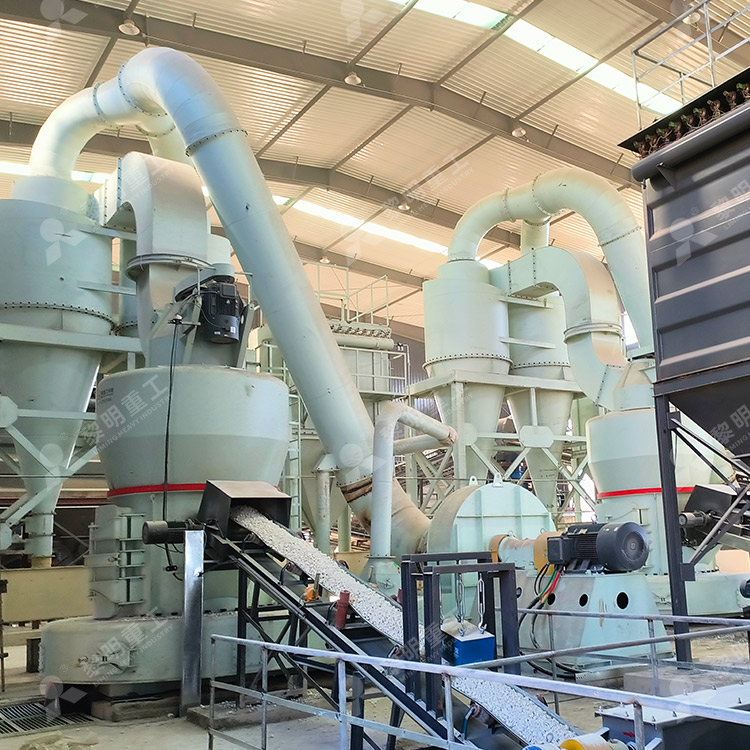Expanding the Indonesia Calcium Carbonate Grinding Project: A Strategic Initiative for Sustainable Industrial Growth
The Indonesia Calcium Carbonate Grinding Project represents a significant and strategic investment in the nation's industrial and manufacturing sectors. Calcium carbonate (CaCO3), a versatile mineral with extensive applications across industries such as plastics, paints, rubber, paper, and construction, is in growing demand both domestically and across the Southeast Asian region. This project aims to establish a state-of-the-art processing facility to meet this demand by transforming locally sourced high-purity limestone into finely ground calcium carbonate powders of various grades. The expansion of this project is not merely an increase in production capacity; it is a comprehensive initiative designed to optimize operational efficiency, enhance product quality, and solidify Indonesia's position as a key player in the global industrial minerals market.
The core of this expansion lies in the integration of advanced grinding technology. Modern milling systems, such as vertical roller mills and classifier-equipped ball mills, will be deployed to achieve superior particle size distribution, higher whiteness, and improved chemical purity. This technological upgrade ensures that the final product meets the stringent specifications required by high-end industries. For instance, the paper industry requires ultra-fine ground calcium carbonate (GCC) as a coating and filler to enhance opacity and brightness, while the plastics industry relies on it as a functional filler to improve mechanical properties and reduce production costs. By producing a consistent, high-quality product, the project will reduce Indonesia's reliance on imported calcium carbonate, fostering import substitution and saving foreign exchange.
Furthermore, the project is conceived with a strong commitment to environmental sustainability and corporate social responsibility. The grinding process will incorporate advanced dust collection systems, such as pulse-jet bag filters, to minimize particulate emissions. Water usage will be optimized through closed-loop systems, and energy-efficient motors and drives will be installed to reduce the overall carbon footprint. The project also includes plans for systematic land reclamation at the quarry site and proactive engagement with local communities through job creation and skills development programs. This holistic approach ensures that industrial growth proceeds in harmony with environmental conservation and social well-being, aligning with global ESG (Environmental, Social, and Governance) principles.
Economically, the Indonesia Calcium Carbonate Grinding Project is poised to generate substantial multiplier effects. It will create direct employment in plant operations and indirect jobs in logistics, maintenance, and ancillary services. The availability of a key raw material locally will act as a catalyst for downstream industries, attracting investments in plastic manufacturing, paint production, and advanced construction materials. This development dovetails perfectly with the Indonesian government's broader objectives of economic diversification, value-added manufacturing, and infrastructure development. By building a robust domestic supply chain for industrial minerals, the project enhances national industrial resilience and contributes significantly to the country's GDP.
In conclusion, the expansion of the Indonesia Calcium Carbonate Grinding Project is a forward-looking venture that transcends simple production scaling. It is a synergistic blend of technological innovation, market-driven strategy, environmental stewardship, and socio-economic development. By leveraging Indonesia's abundant natural resources with modern processing capabilities, the project is set to become a cornerstone of the nation's industrial landscape, driving sustainable growth and creating long-term value for all stakeholders.
FAQ (Frequently Asked Questions)
1. What are the primary applications of the calcium carbonate powder produced by this project?
The calcium carbonate powder from this project is a multi-purpose material with wide-ranging applications. Key sectors include:
Plastics: Used as a filler to reduce costs, improve stiffness, and enhance heat resistance in products like PVC pipes and profiles.
Paints & Coatings: Acts as an extender pigment to improve whiteness, opacity, and matte finish.
Paper: Serves as a filler and coating pigment to enhance paper brightness, opacity, smoothness, and printability.
Rubber: Improves tensile strength and wear resistance in products like tires and footwear.
Construction: Used as a raw material in sealants, adhesives, and building compounds.
2. How does the project address environmental concerns, particularly regarding dust and energy consumption?
The project employs several advanced measures to mitigate its environmental impact:
Dust Control: High-efficiency dust collection systems (e.g., baghouse filters) are installed at all major transfer points and the grinding mills themselves to capture over 99.9% of particulate matter.
Energy Efficiency: The project utilizes modern, energy-optimized grinding mills and classifiers. Variable Frequency Drives (VFDs) are used on motors to match energy consumption with processing demand, significantly reducing power usage.
Water Management: A closed-loop water circulation system is implemented for cooling processes, minimizing freshwater consumption and preventing wastewater discharge.
3. What economic benefits will this project bring to the local community and Indonesia as a whole?
The project is expected to deliver significant economic benefits on multiple levels:
Job Creation: It will generate direct employment for plant operators, technicians, and administrative staff, as well as indirect jobs in transportation, raw material sourcing, and local services.
Industrial Development: By providing a high-quality, locally sourced raw material, it supports the growth of downstream manufacturing industries, making them more competitive and reducing their reliance on imports.
Foreign Exchange Savings & Revenue: Substituting imported calcium carbonate with domestic production saves foreign exchange. Furthermore, potential exports to regional markets can generate additional revenue for the country.





